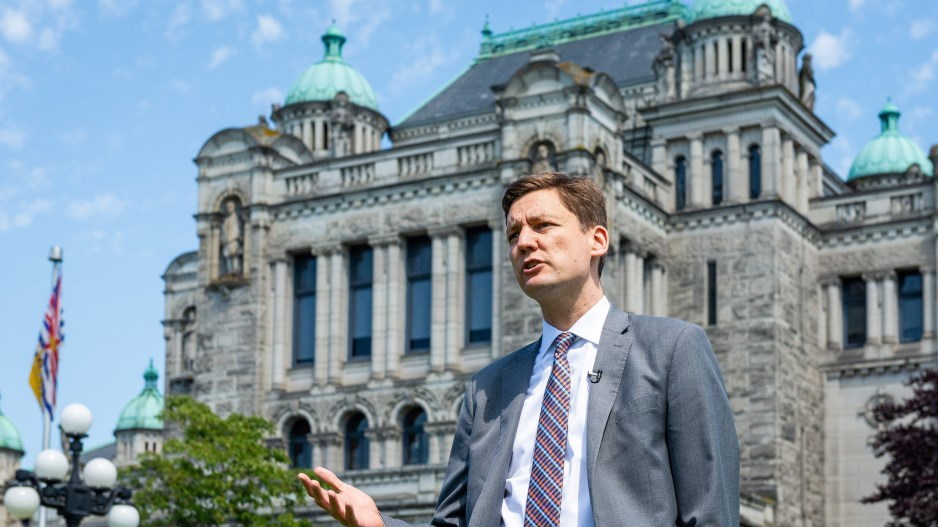BC NDP leader David Eby will be sworn in as B.C.’s next premier shortly after this column is published. He will inherit an array of complex policy files. While the province has emerged from the pandemic in decent economic and fiscal shape, there are no grounds for complacency.
The incoming premier and his refreshed cabinet will be seized with several hot-button issues, including escalating living costs, housing affordability, the health-care mess and waning public confidence in the criminal justice system. There is also the economic slowdown now underway, which will impinge on the government’s finances in 2023 and beyond. All of these are important matters, to be sure. But we hope Premier Eby and his team can also find time to focus on some of the medium- and longer-term economic challenges facing the province.
One of the most important is economists’ favourite chestnut: productivity growth.
As our colleague David Williams documented in a recent peer-reviewed paper, the Canadian data reveals a strong positive relationship between productivity and earnings. That is, workers’ wages and other compensation tend to rise with higher firm-level productivity. Like Canada as a whole, B.C. needs to up its game on productivity – particularly if policymakers want to bolster the “middle class.” This calls for more investment in things that raise productivity: Machinery, plant and equipment, digital and other advanced process technologies, software and data, engineering infrastructure and transportation infrastructure that connects B.C. to outside markets. There is also an urgent need to modernize and overhaul cumbersome and costly regulatory and permitting regimes that are bogging down some of our biggest industries.
Another key task is to strengthen and diversify the export base. For a small open economy, a critical mass of export-capable industries is vital to maintaining a high standard of living. Exporting generates external income that allows B.C. to pay for the imports that households and businesses rely on. Competitive export industries also contribute to a robust tax base that helps to finance public services. As we discuss in a forthcoming Business Council of British Columbia paper, B.C. has been “retreating” from international markets, with exports accounting for a diminishing share of gross domestic product since 2000. This differs from most other advanced economies, where international trade has become more important. Supporting B.C.’s export economy begins with improving the business environment for our leading export-oriented industries – natural resources, tourism, gateway services, film and TV production, and education – while also building export capacity in sectors like high technology, advanced manufacturing, and other high-value traded services.
Talent attraction and retention is also critical. For employers, the competition for both highly qualified people and willing hands has rarely been more intense. Immigration will help to fill some of B.C.’s human resource gaps, but policymakers must pay particular attention to shortages of trades, digital, technical, professional and managerial skills. Unfortunately, current B.C. tax policy is not well aligned with making the province a destination of choice for talent. Among other things, we have the fourth highest top personal income tax rate in North America – and that rate kicks in at a much lower income level than is typical of other jurisdictions. A social democratic government may be comfortable levying a 53.5 per cent tax rate on the highest earners, but it would be wise to raise the income threshold where this rate applies – perhaps to $500,000, compared with just $227,000 today.
Finally, the province has work to do to leverage the advantages stemming from its clean electricity system that makes our exports less carbon intensive than those from competing jurisdictions. On average, the carbon content of B.C.’s export goods – minerals and metals, lumber and building materials, pulp and paper, other manufactured products, foodstuffs, and energy – is only half that of the same items produced elsewhere. This should make our province an appealing location for industrial investment. But the unusual design of the province’s carbon pricing system means these industries operate at a growing cost disadvantage on a North American and global basis, despite our low-carbon energy system. This problem requires a fix if policymakers want to keep capital flowing into British Columbia’s leading export sectors. •
Jock Finlayson is the Business Council of British Columbia’s senior policy adviser; Ken Peacock is the council’s senior vice-president and chief economist.



